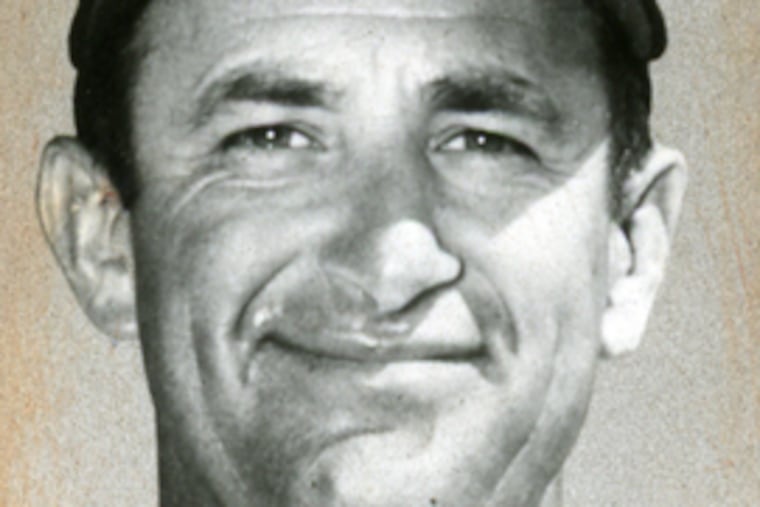A Hall of Fame strikeout
Denying Mickey Vernon, Veterans Committee voters again displayed a flair for the incomprehensible. The system cries out for overhaul.

Rich Westcott
is a baseball historian and author of many books
Once again, Baseball Hall of Fame voters have served up a heavy dose of injustice. This month, in the latest example of the hall's consistently incomprehensible voting, Marcus Hook native Mickey Vernon was denied admission.
Vernon, who died in September, was one of 10 players on the ballot whose major-league careers began before 1943. To make matters worse, for the fourth consecutive year, nobody on a list of players whose careers started after 1943 and ended by 1987 was invited to Cooperstown, either.
This was outrageous, disappointing and embarrassing to a normally respectable organization.
First baseman Vernon attracted a mere five of the votes cast by a 12-member panel. A nominee needed nine votes to be elected by the group, which consisted of seven living Hall of Famers and five so-called historians, including a former general manager and four members of the media.
So who was elected? Second baseman Joe Gordon, who received 10 votes.
Certainly, Gordon was a fine player. He won an MVP award and played on five World Series-winning teams.
But he had a lifetime batting average of .268, compared with Vernon's .286. Gordon had 1,530 hits; Vernon had 2,495. Gordon had 336 fewer RBI than Vernon, played in nine fewer seasons, and never won a batting crown or a fielding title. (Vernon won two of the former and four of the latter.)
In fact, the only major offensive statistic in which Gordon bested Vernon was home runs (253 to 172).
Compounding the questionable thinking of the seven voters who ignored Vernon, Hall of Famer and onetime Gordon teammate Bob Feller (not one of the voters) made the ridiculous comment, published in The Inquirer, that Gordon "was a major Hall of Famer. He was an acrobat around the bag." And what did he think Mickey Vernon was?
At this point, it might be noted that Gordon played seven seasons with the Yankees. If you don't think that weighed heavily in his favor, you probably live on another planet.
By the way, although he didn't garner enough votes to get elected, pitcher Allie Reynolds finished second on the ballot with eight votes. Reynolds won 182 games, compared with 198 won by native Philadelphian Bucky Walters, who collected only four votes. Reynolds (who hurled two no-hitters) was a 20-game winner once; Walters, an MVP, did that three times.
Oh, and did I mention that Reynolds spent eight of his 13 seasons with the Yankees?
Clearly, the Hall of Fame's voting procedures need a substantial overhaul. The original pre-1943 ballot was chosen by a group consisting solely of 12 media types, most or all of whom never saw the candidates play.
To add to the flaws of the present system, the next vote on the pre-1943 nominees will not be held for five years.
Unfair? You have to believe it is.
Equally outlandish was the election for the post-1943 group. Sixty-four Hall of Famers cast their votes. And no nominee came close to being elected.
The candidates were 10 former players, including Ron Santo, Gil Hodges, Tony Oliva and Dick Allen. You telling me that nobody in that group qualifies for the Hall of Fame?
Among its many shortcomings, this process sanctions an "old boy" network that too often has voters casting ballots for their buddies. That makes for an election based on favoritism instead of the merits of the candidates.
Over the years, the Hall of Fame has repeatedly changed the process for electing old-timers. There's no perfect solution.
But if the process excludes Mickey Vernon, rates Allie Reynolds above Bucky Walters, and doesn't elect a single player from the post-1943 group, something is definitely wrong.
The outrageous results of this year's election cry out for major changes in the system. Otherwise, there will be no justice in Mudville.